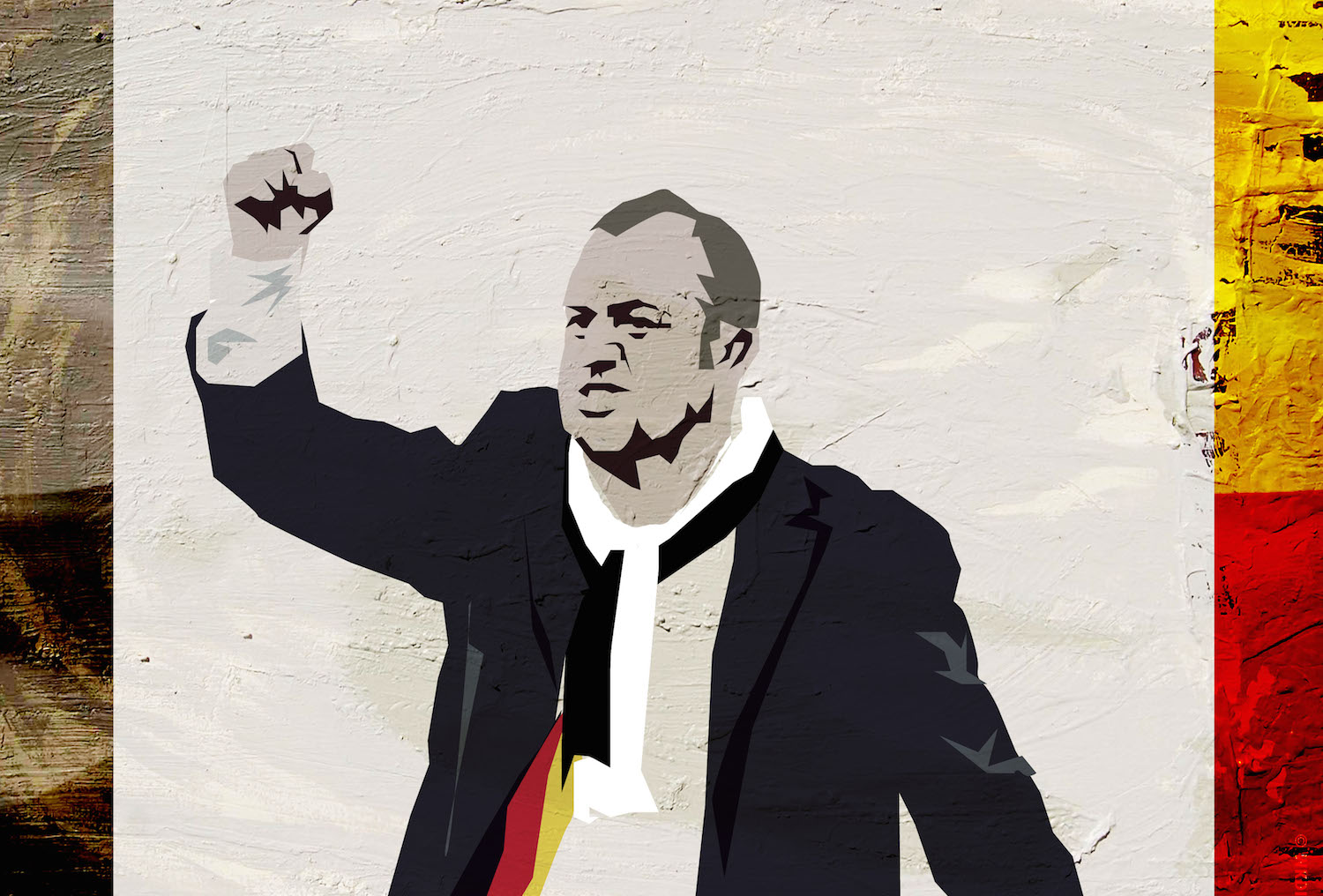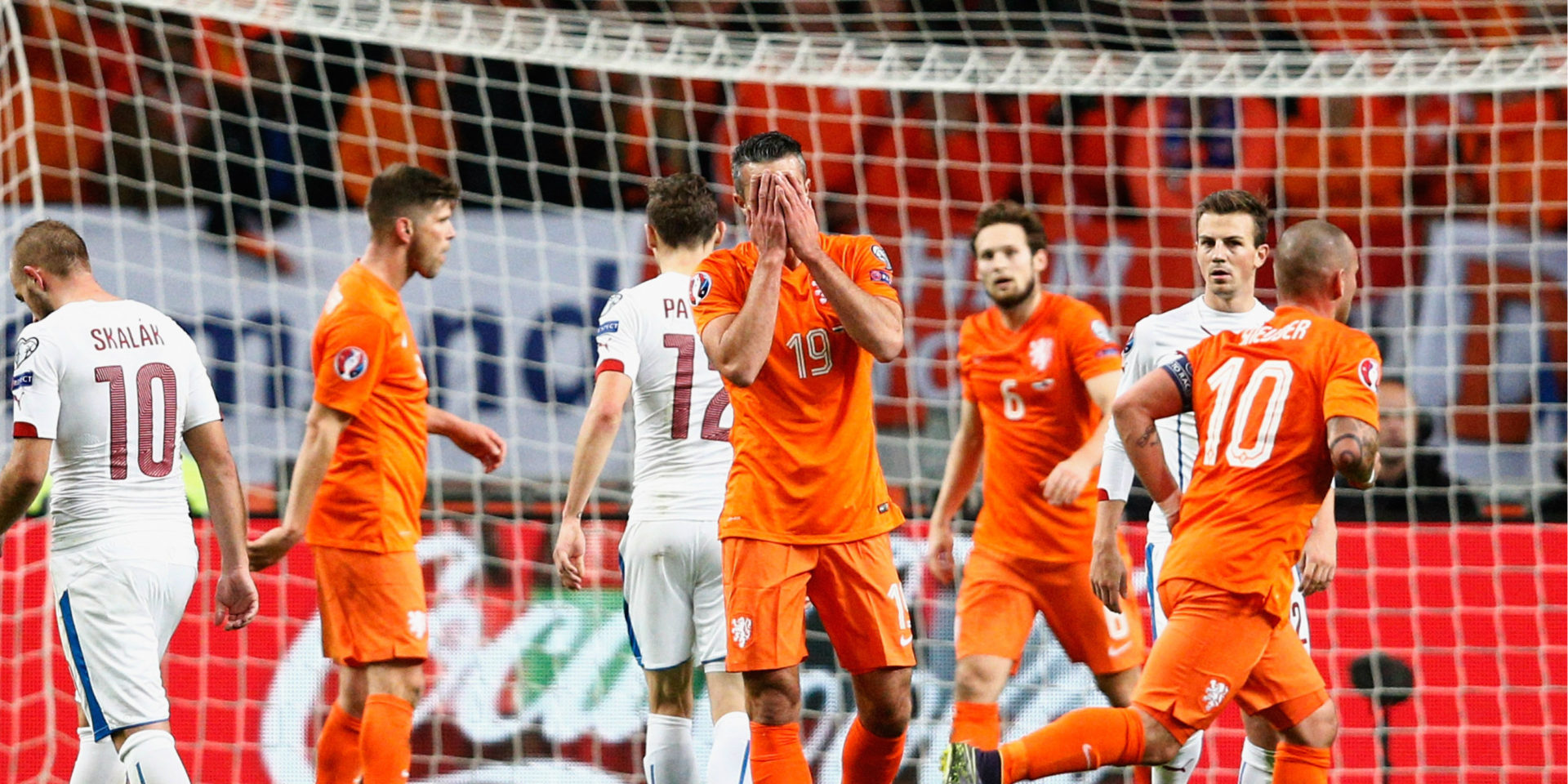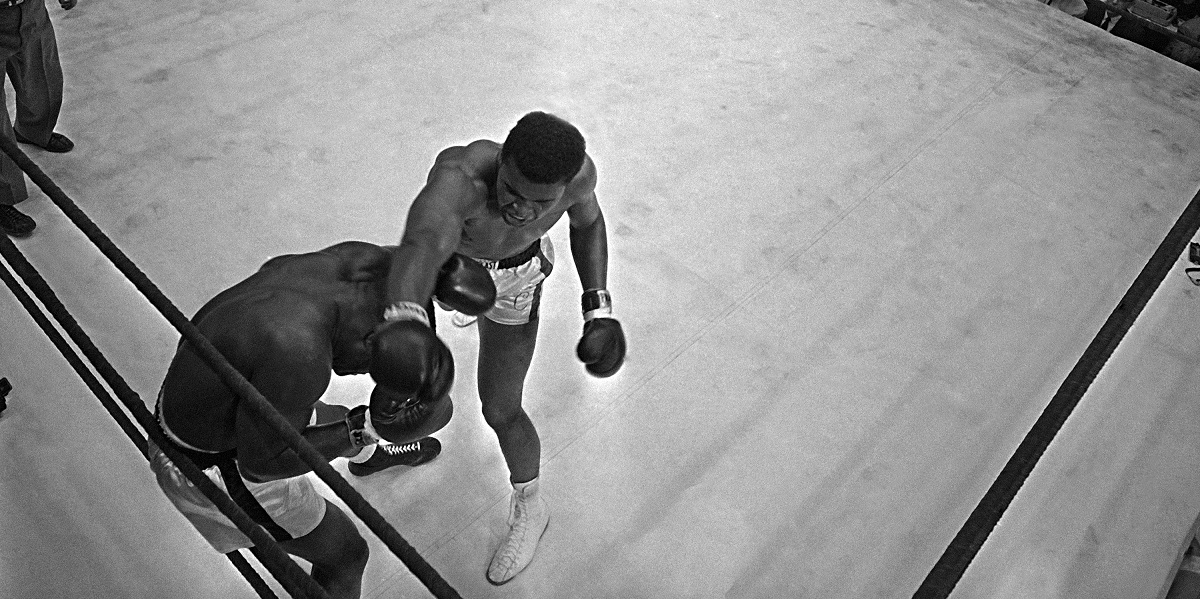*Published in September 2015 issue.
On the hill above where Arsenal used to play at Highbury, there is an Italian restaurant, San Daniele de Friuli. It does simple, uncomplicated fare, and for a while it was favoured by Arsene Wenger and a number of Arsenal players. It remains a regular haunt of journalists, drawn by the late opening hours and the ready supply of inexpensive but quaffable wine. On the wall, among the Italian football scarves, there is a black and white photograph of a slim man with bulging eyes, his hair swept back by the wind as he drives a open-topped car. It’s a picture of Enzo Ferrari, but I’m not the only one whose done a double-take the first time they saw it; the manager is used to explaining that it’s not Mesut Ozil.
It’s a feature of the Germany international that he doesn’t look much like a footballer. He looks like a comic actor from the early days of film, or perhaps a mad scientist waiting for the explosion that will cover his face in soot and lift his hair straight upright from his head. When he is playing well, it’s one of his most endearing features, a player who has apparently drifted in from another walk of life or another era to find an impossible pathway through an opposing defence. But when he’s playing badly – or even when his team is playing badly – he’s an easy man to blame. He’s the outsider. He doesn’t bristle with muscle or snarl with intent. Stereotypes are hard to shake off; fans see him and they seen a player who doesn’t look like a grafter. He looks soft, like the pale brooding kid at school who hung around in lonely corners and tried to avoid getting beaten up at lunchtime. And so when his team is chasing the game, it’s Ozil people tend to end up having a go at.

Sometimes it’s deserved. In the home game against Bayern Munich in the last 16 of the Champions League in February 2014, for instance, Ozil had a game to forget. He missed an early penalty, after which he simply seemed to freeze. His pass completion dropped from its usual 86-87% to 77%, while his head was so scrambled that he seemed unable to perform the most basic tasks. Pep Guardiola, pretty clearly, targeted him, overloading on the flank he was supposed to be covering. It was one of those uneasy nights when the home side’s dissatisfaction with one of their one players is clearly audible – which, of course, only compounds the situation. And yet, even in that game, Ozil had 40 touches, more than all but one other Arsenal player. He made three interceptions – that was matched by Yaya Sanogo but no Arsenal player managed more – and two clearances. On a bad night for Arsenal he was bad, but he wasn’t necessarily that much worse than anybody else; it just looked like it.
It was a similar story in the World Cup, where Ozil was widely criticised as Germany struggled to find their rhythm in the early stages of the tournament. Even by the end of it, there were some who seemed to suspect he’d effectively been carried by his team-mates. The Daily Mail ran a bizarrely critical piece after the 7-1 win over Germany, and then seemingly thinking better of it, deleted the article from its website, but they weren’t the only ones. “We see that differently than you do,” said Germany’s assistant-coach Hansi Flick when pressed on the issue by German journalists. “Mesut is playing a different position now than he used to and he’s got a different assignment now. He’s got very strong skills with the ball and on top of that he’s improved during the course of the tournament.”
But Ozil completed more successful passes into the final third than any other player at the World Cup. He created more chances than any player other than Lionel Messi. Perhaps most surprisingly, he won the ball back more in the final third six times – only Neymar did that more – suggesting that for all the allegations of laziness, Ozil is actually very good at defending from the front.
“He works harder than many people think he does,” Arsene Wenger said after the win over Crystal Palace in August this year. “He’s not spectacular in his defending, but he wants to do the job and help the team. It’s a pleasure to watch the quality of his passing and the intelligence of his passing. What I want from him more is a few more goals this season.What I liked in his game today was he made many runs without the ball behind the defenders which is a bit new as he likes to come with the ball but today he mixed up his game better.”

That quest for variety feels like a key departure. During Ozil’s less effective periods with Arsenal, there has been a sense that he is neutered if he doesn’t have players breaking beyond him: he may be able to envisage the pass that will unlock an opponent, but it doesn’t matter if there’s no forward making the run. It’s not simply a matter of base efficiency, though. Xabi Alonso has spoken of Ozil as “the sort of player you don’t find any more”, an old-fashioned type of creator, but the modern brand of playmaker is multifaceted: the likes of Lionel Messi, James Rodriguez and Neymar are goalscorers as well as goalmakers. Modern football is all about universality, about players who can perform multiple roles and, although there is something uplifting about seeing Ozil in form, it is a bit like seeing a beautifully polished vintage sports car; there’s a nostalgic admiration but you know it’s impractical in the modern world. If Ozil could add goals it would not only be useful in the obvious sense, but also for the greater variety it would give Arsenal’s attack.
I first saw Ozil live during a World Cup qualifier on a cold night in Moscow in October 2009. This was Germany before the recent boom, before their extraordinary youth development programme had kicked in, when there seemed a real danger they were slipping back into the pack, their team full of diligent but largely unspectacular or unimaginative players. That was Ozil’s fifth appearance for Germany, and only his second start in a competitive game. He was still just 20 and playing for Werder Bremen. Amid the muscular automata, he seemed incongruous, a ghost, haunted the unoccupied areas of the pitch. He was also the glimmer of imagination for which Germany had been crying out for a decade. He set up the only goal of the game for Miroslav Klose after a deft one-two with Lukas Podolski, a goal of great class and quality out of keeping with the rest of a frenetic game.
Whatever else he is, Ozil is a sumptuous talent, a player out of time blessed with an otherworldly capacity to understand the pitch and the distribution of players on it and so find the perfect pass. In his three seasons at Real Madrid before joining Arsenal, Ozil finished top of the assists chart in La Liga. “Anybody who’s ever played with Mesut will tell you how intelligent he is,” said Philipp Lahm, for a long tie his captain at international level. “I’ve never played with anybody who has the vision he has.” Even Jose Mourinho, who often seemed frustrated by Ozil’s defensive work, described him as “the best number 10 in the world”.
In an essay on baseball, the US evolutionary biologist Stephen Jay Gould wrote about what he termed “the universality of excellence”: “I don’t deny the differences in style and substance between athletic and conventional scholarly performance,” he said, “but we surely err in regarding sports as a domain of brutish intuition… The greatest athletes cannot succeed by bodily gifts alone… One of the most intriguing, and undeniable, properties of great athletic performance lies in the impossibility of regulating certain central skills by overt mental deliberation: the required action simply doesn’t grant sufficient time for the sequential processing of conscious decisions.”
Ozil cannot possibly look about him, work out where all the players are, work out who is moving where and at what speed, and only then decide where and how hard and with what spin he has to play the pass; his decision-making is largely instinctive, and yet the calculation must go on. He has a remarkable capacity simply, almost intuitively, to comprehend the field. When you understand the game as he does, conspicuous effort shouldn’t be that important.



